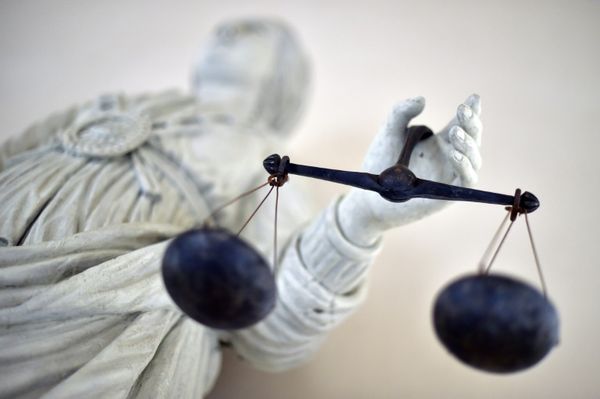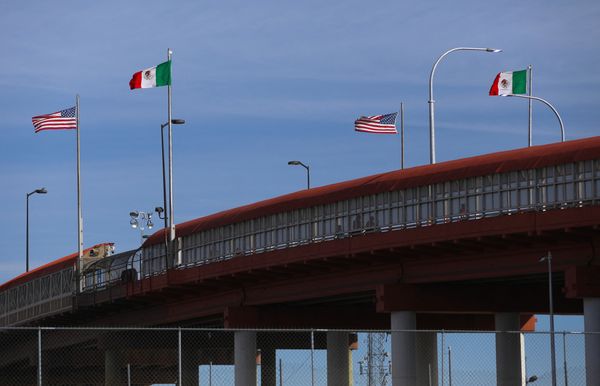Ukraine’s president, Volodymyr Zelenskiy, has said his compatriots are fighting to stop “a new iron curtain” falling across the country after Russian forces launched a huge and long-dreaded invasion that has sparked fears of the biggest war Europe has seen since 1945.
Minutes after the Russian president, Vladimir Putin, ended weeks of agonised speculation by announcing a “special military operation” at dawn on Thursday, explosions were heard near major Ukrainian cities, including the capital, Kyiv.
Ukraine’s interior ministry reported that the country was under attack from cruise and ballistic missiles, with Russia appearing to target infrastructure near major cities including Kyiv, Kharkiv, Mariupol and Dnipro.
Zelenskiy responded to the invasion by declaring martial law and saying Kyiv would issue weapons to every Ukrainian who wanted to defend their country.
As Ukrainian diplomats pleaded with the world to stop the Russian aggression, Zelenskiy warned of a bleak return to the past. “What we have heard today are not just missile blasts, fighting and the rumble of aircraft,” he said.
“This is the sound of a new iron curtain, which has come down and is closing Russia off from the civilised world. Our national task is to make sure this curtain does not fall across our land.”
By mid-afternoon on Thursday, Russia’s defence ministry claimed to have “neutralised” Ukraine’s airbases and air defences, destroying 74 military ground facilities, including 11 airfields, three command posts and 18 radar stations for anti-aircraft missile systems.
Ukrainian authorities said Russia had carried out 203 attacks and that fighting was raging across almost the entire territory.
Military sources in Ukraine said 20 Russian helicopters and Mi-8 aircraft had landed paratroopers at Hostomel airport in the Kyiv region, where forces from both sides were fighting for control. They said Ukrainian forces had killed 50 Russian troops, destroyed four Russian tanks, and downed six Russian planes and four helicopters. Zelenskiy also said Ukrainian forces were fighting to prevent Russian troops capturing Chernobyl. It was later reported that the Russians now held the former nuclear plant.
The early hours of the invasion appeared to have claimed dozens of civilian lives in Ukraine. According to the authorities, 18 people were killed in a missile attack in the southern Odesa region, six people were killed in the town of Brovary, near Kyiv, and four people were killed and 10 injured after an “occupier’s shell” hit a hospital in the city of Vuhledar in Donetsk.
With air raid sirens sounding over the capital and residents of Kharkiv sheltered in the city’s metro – scenes not seen in those cities since 1941 – Ukraine’s foreign minister also urged the world to wake up.
“Putin has just launched a full-scale invasion of Ukraine,” said Dmytro Kuleba. “Peaceful Ukrainian cities are under strikes. This is a war of aggression. Ukraine will defend itself and will win. The world can and must stop Putin. The time to act is now.”
Andriy Zagorodnyuk, Ukraine’s former defence minister, told the Guardian that multiple ground invasions were taking place on several fronts.
“There are thrusts taking place,” said Zagorodnyuk. “They are quite close to the city of Kherson now. The situation is really critical there. They are also trying to surround Kharkiv. It seems like Kharkiv at the moment is the main target. They also try to get to Kyiv using one battlefield group.”
In a bid to justify the attack, Putin claimed in his TV address: “A hostile anti-Russia is being created on our historic lands.”
“We have taken the decision to conduct a special military operation,” he said, in what amounted to a declaration of war. He claimed it was for the “demilitarisation and denazification” of Ukraine, echoing a theme of Kremlin propaganda, the false claim that the Kyiv government is controlled by the far right.
“We do not intend to occupy Ukraine,” he said, and he had a chilling warning for other nations. “To anyone who would consider interfering from the outside: if you do, you will face consequences greater than any you have faced in history. All relevant decisions have been taken. I hope you hear me,” he said.
As Putin’s words were being broadcast and the first detonations were being reported, the UN security council was holding an emergency session, chaired by Russia itself, which holds the rotating presidency. It was begun by the UN secretary general, António Guterres, who made a direct appeal: “President Putin, stop your troops from attacking Ukraine. Give peace a chance. Too many people have already died.”
The US president, Joe Biden, issued a written statement saying: “The prayers of the entire world are with the people of Ukraine tonight as they suffer an unprovoked and unjustified attack by Russian military forces.
“President Putin has chosen a premeditated war that will bring a catastrophic loss of life and human suffering,” Biden said. “Russia alone is responsible for the death and destruction this attack will bring, and the United States and its allies and partners will respond in a united and decisive way. The world will hold Russia accountable.”
Other world leaders also condemned the invasion. The UK prime minister, Boris Johnson said: “I am appalled by the horrific events in Ukraine and I have spoken to President Zelenskiy to discuss next steps. President Putin has chosen a path of bloodshed and destruction by launching this unprovoked attack on Ukraine. The UK and our allies will respond decisively.
“We will hold the Kremlin accountable,” wrote Ursula von der Leyen, the head of the EU Commission, which had announced fresh sanctions against Moscow only hours before the attack.
The stage for the offensive was set on Wednesday night, after the leaders of the two Russian-controlled territories in eastern Ukraine sent an official request to Moscow for military aid to “help repel the aggression of the Ukrainian armed forces in order to avoid civilian casualties and a humanitarian catastrophe in the Donbas”.
Zelenskiy used a video address to appeal to the Russian public for help after an attempt to speak to Putin was unsuccessful. “Do Russians want wars? I would very much like to answer this question. But the answer is up to you,” he said.
He also vowed to defend the country, saying: “If someone attempts to take away our land, our freedom, our lives, the lives of our children, we will defend ourselves. By attacking, you will see our faces, not our backs, but our faces.”
Military analysts said they expected Putin to send his forces to capture or surround Kyiv. There were reports in Russian state media that airborne troops had captured the airport in Boryspil, near the capital.
The Russian military claimed that all of Ukraine’s aviation bases were disabled in the barrage of missiles that began the invasion.
Smoke rose from near major airfields outside Kharkiv and other cities in the east. But Russia also appeared to have hit airfields in Kherson and as far west as Ivano-Frankivsk, which is nearer to the border with Poland.
It indicated its forces had entered Ukraine, claiming Ukraine’s border forces were “not putting up any resistance to Russian units”.
Some of the first explosions after Putin announced the operation were heard near Kramatorsk, the headquarters of the Ukrainian army’s operations near the Russian-controlled territories in south-east Ukraine. Russia appeared to be targeting military infrastructure in its early strikes on Thursday morning. Explosions were also reported at military headquarters, and at military warehouses.
The dramatic escalation of the crisis is the second time Moscow has launched a significant military incursion into Ukraine since the country gained independence from the Soviet Union in 1991. In 2014, Putin ordered undercover Russian soldiers to seize the Crimean peninsula, which Moscow then annexed.
Thursday’s attack was preceded by a massive, continuous cyber-attack that targeted Ukraine’s ministries and banks, a form of hybrid warfare to sow confusion. In previous weeks, Putin built up an estimated 190,000 troops close to Ukraine’s borders while European leaders shuttled between Kyiv and Moscow, seeking a diplomatic solution.
The Russian military claimed it was not targeting population centres. “High-precision weapons are disabling the military infrastructure, air defence facilities, military airfields and aviation of the Ukrainian army,” the Russian defence ministry said in a statement carried by RIA Novosti, a state-run news agency.
Military analysts questioned whether Russia could sustain the bombardment and believed a ground invasion was likely.
“Russia has a very effective aerial, naval and ground fires capability but it lacks large stockpiles of precision-guided munitions, which is why a ground offensive appears to have begun soon after the first strikes. Russia has every incentive to move as fast as possible,” wrote Rob Lee, a senior fellow in the Foreign Policy Research Institute’s Eurasia Program.
The Russian rouble fell to a record-low level since 2016 as Putin announced the military operation. Trading was halted on the Russian stock market.
The US is likely to announce new sanctions against Russia, using tools to punish Russian banks and its larger financial system that Washington had so far held in reserve.
Biden said: “I will meet with my G7 counterparts in the morning and then speak to the American people to announce the further consequences the United States and our allies and partners will impose on Russia for this needless act of aggression against Ukraine and global peace and security.”







